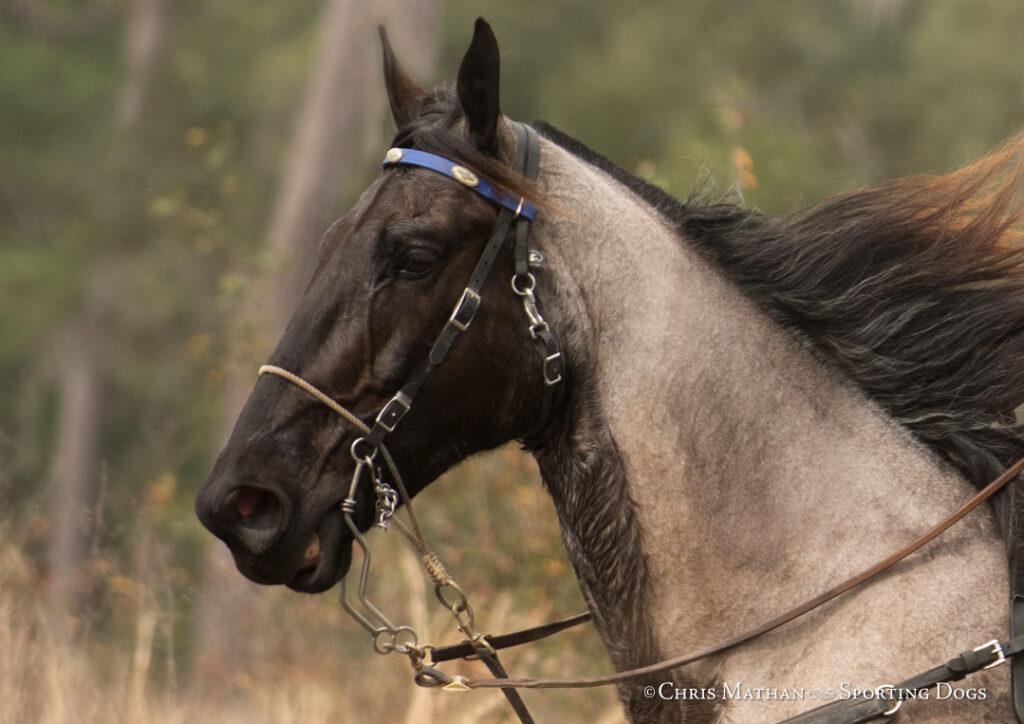The legendary pointing dog field trial scout Abe Moses dropped dead from the saddle of his horse Feather while riding in the gallery of the Manitoba Championship, having just scouted his employer’s last entry. It was during the last brace, for a bye dog that was immediately picked up by its handler to end the stake. A thirty minute all-age, then a thirty minute derby, were to follow. It was three pm and club officials decided to postpone further running until next morning.
Abe had worked for Harley Goins twenty years. Harley was based near Selma, Alabama and his summer training grounds were thirty miles west of the pasture where this trial was now running. Abe and Harley had known Abe might die this way of an inoperable aneurism. Harley knew Abe had in fact prayed for his life to end this way. Abe was seventy-five years old but, thanks to his work, as supple at the end as any twenty-year-old and save for the aneurism in good health.
Abe was a childless widower (his wife of forty years had died the year before, also suddenly) and Abe had requested of Harley that if he died on the prairie he be buried here and his only possession of any value, his scouting horse Feather, a roan grade TWH gelding ten years old, be auctioned and its proceeds given to his church in Selma for its scholarship endowment fund.
Right after the Manitoba Champion was announced and a rescue vehicle from the Volunteer Fire Department nearby carried Abe’s remains away to the nearest funeral director’s establishment, Harley announced Abe’s request and that Feather would be auctioned here right after the derby stake concluded at the trial’s end.
The six pro handlers and four serious amateur dog men present knew Feather well and coveted him. He had served as Abe’s eyes for several years as glaucoma had narrowed his field of vision. Feather was one of those rare dog horses that understood his job as well as his rider did and never took his eyes off the dog he was scouting. He also anticipated the moves the dog would likely make out of his sight working his course, and if his dog stood he would see it motionless instantly when it came into his field of view. These talents made Feather priceless, but few at this venue had the money to pay what Feather was likely to bring. Cell phones had not yet been invented and there were no pay phones or phones in motel rooms about, so the motel’s office phone would be busy long into the night as handlers queued up to call sponsors or bankers in the US.
Moods were somber through the thirty minute all-age and derby stakes as Abe was fondly remembered. Harley traded with another handler for scouting services but without Abe and Feather’s scouting Harley’s entries did not place. Harley had called all his owners to tell them of Abe’s death and Feather’s auction. His best owner, Frank Meeks, president of a Birmingham bank, said to Harley, “I’ll talk to you the night before the auction and tell you how much to bid for me. Call me then at home.”
Harley knew why Frank Meeks would bid high for Feather. His daughter, June, age sixteen, had ridden Feather in the gallery in trials since she was eight; she loved the horse and Frank Meeks loved her unreservedly. Other handlers’ wealthy dog sponsors also admired Feather and wanted him for themselves or their handlers.
Harley called Frank Meeks the night before the trial would end with Feather’s auction. Frank’s message about the auction was no surprise to Harley. “Bid for me whatever it takes to get Feather.”
Harley was prepared with a message for Frank in response; it was this:
“Mr. Meeks, before you spend a lot of money for Feather, I must tell you this. Feather is a dog horse. He is accustomed to having a job, and a hard one. He loves his work. Without his job he would be lost. So if your plan is to buy him and take him home for Miss June to ride there weekends he is going to be a very unhappy horse and he will get depressed and likely get sick.
“If you buy him and leave him with me, for Miss June to ride at trials or training sessions on my grounds, that will work. I doubt I will hire a replacement for Abe. I’ll likely start trading with other handlers for scouting — it’s called ‘helpin’ each other‘ and most everyone is doing it now. Cuts expenses, you do not have to pay a scout or supply him horses. But please don’t buy Feather and take him to your place for Miss June to ride there.”
Frank Meeks took Harley Goins’s advice. Harley made the high bid for Feather who would stay with Harley and become his number one handling horse except when June Meeks came to ride at trials or at Harley’s home grounds at dog training sessions. Coached by Harley and her father, she began to handle dogs in amateur trials from astride Feather, with great success. So Feather kept his job in slightly altered form and remained a happy, working horse with a regular job — or two.
